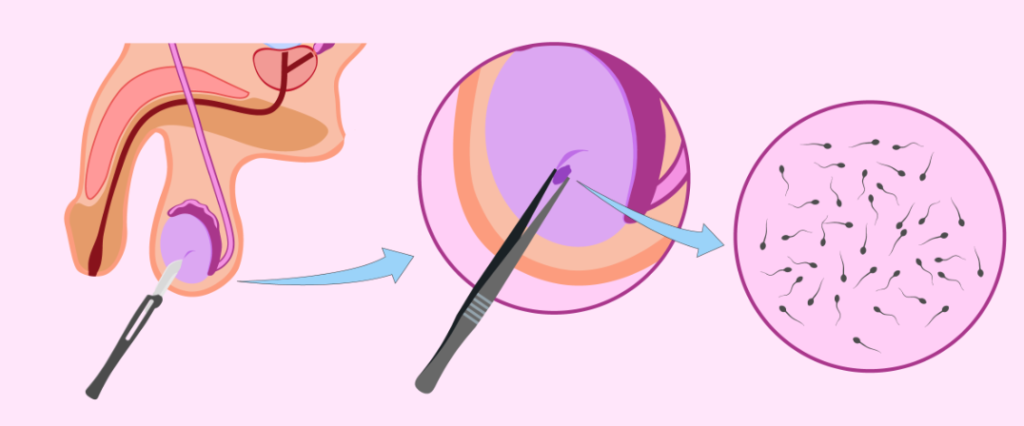Sperm Retrieval vs. Diagnostic Testicular Biopsy
Sperm harvesting differs from diagnostic testicular biopsy as its goal is not to diagnose testicular issues but to locate sperm. This procedure is typically reserved for men with no sperm in their ejaculate (azoospermia).

Image Source: inviTRA
The approach can range from simple aspiration in cases of blockage to more extensive sampling for men with sperm production problems. Consequently, the procedure’s duration, need for anesthesia, and equipment vary significantly.
Predicting Sperm Presence
Unfortunately, few tests can accurately predict whether sperm will be found in the testes of men with testicular problems. While genetic testing may offer some insight, it is not conclusive.
The testis’s condition as revealed by a diagnostic testicular biopsy, may provide some predictive value, but no findings guarantee the presence or absence of sperm. Other blood tests, including hormonal studies, lack predictive power.
Unpredictable Nature
Even if sperm were found during a previous sperm harvesting session, it does not guarantee their presence in future attempts.
Therefore, a diagnostic testicular biopsy is not typically performed when the cause of a zero sperm count is already established through other means.
Types Of TESE Procedures: Testicular Sperm Extraction (TESE)
TESE involves making a small incision in the testis and examining the tubules for sperm. This procedure is often coordinated with the female partner’s egg retrieval and can be performed with sedation in the office or under general anesthesia in the operating room.
Patients usually cryopreserve sperm during this procedure for future IVF/ICSI. MicroTESE is preferred for men with no sperm in their ejaculate due to production issues.
Microdissection TESE (MicroTESE)

MicroTESE is for men with sperm production problems resulting in azoospermia. It is performed in the operating room under general anesthesia with an operating microscope. This procedure is carefully coordinated with the female partner’s egg retrieval and is conducted the day before.
Micro TESE has significantly improved sperm retrieval rates and is safer since it involves less testicular tissue removal. Patients cryopreserve sperm for future IVF/ICSI during this procedure.
